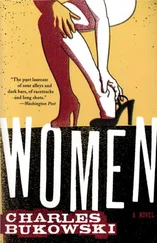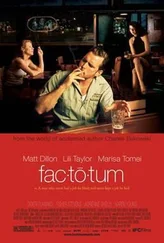Problem was, Danger-Prone Daphney swore she'd never been to New Orleans, Daphney was a West Coast gal; Lestat must have mistaken her for some other pregnant goddess. Moreover, the time frame of Daphney's pregnancy didn't jibe with when Lestat had supposedly helped her, and neither did her dog's age. All facts and evidence pointed to the impossibility of Daphney being in New Orleans at that time, and Daphney enjoyed lording this over Lestat, using it as a trump card in their arguments, or when she was simply pissed at the world. The alcohol had affected Lestat's brain, Daphney would say. He was the one with the memory problems. Lestat had no answers for this, so he would put up a stoic front, admitting that he was wrong, ha ha, it was kind of funny, wasn't it. Meanwhile, Lestat's memory was one of the few things he believed in, and it embarrassed him to no end that he'd juxtaposed Daphney's hair and body onto another experience. In a million years Lestat never would have admitted that when he focused, he saw he had not helped Daphney in the French Quarter; but a pockmarked and thinwaisted wild child, who, in the end, also had not returned Lestat's affections. Lestat was painfully aware of his habit of attaching himself to chicks who wanted only platonic friendships from him; and while he wished he could change what had — and hadn't — taken place with these women, he was basically resigned to bad endings, accepting of what he thought of as his fate. Throw in his sense of duty toward a damsel in distress. You start to understand why he'd saddled up alongside Daphney for so long, why he sometimes called home and asked his mom for help with Danger-Prone Daphney. The nursing supervisor at County General, Lestat's mom always asked how Daphney was doing, and told Lestat to get that girl to a hospital. Then his mom always caved and helped with whatever situation Daphney had gotten herself into. His mom accepted the charges whether Lestat called from the middle of a self-pitying drunk, whether he felt lonely and worn down, when he called to tell his mom lies about how he was doing or just to get medical advice. The sound of his mom's voice never failed to bring Lestat to the brink of tears. However, if Lestat's dad answered the phone, the charges would not be accepted. Lestat's father felt it was his son's decision to leave, it would be his decision to come back, and until then, he would not get on the phone with Lestat. Whenever Lestat's call home started winding down, the firm hard silences of Lestat and his mother trying to find something to talk about were resonant, and lots of times, Lestat got real quiet and started sputtering, not because he didn't know how to talk, but because this wasn't one of his fleece jobs or shell games; because too much had happened for him to put into words to someone who meant this much to him. It was impossible to figure out where to start.
So the dial tone broke; the pay phone receiver went back into the cradle, the phone slammed back into its station, it dropped and hung and was suspended from its steel cord. Lestat left the booth and headed toward the corner where the big Mexican wasted time by doing chin-ups on a construction stanchion. He walked away from the stanchion and past the bench with the old toothless lady and the old crippled man and their plastic bags of glass and aluminum. Lestat walked down the street and toward the bevy of transvestite hookers who occasionally treated him to Hostess CupCakes. He crossed the street to get away from the crazy blind man defecating on the sidewalk. The black guy trying to sell a new Rolex ignored Lestat. The incense salesman trained his narrow eyes and, in a heavy Caribbean accent, whispered, You in a dark place now, lad. Lestat wore two pairs of socks at all times to try to cut down on his blisters. He cobbled the rubber soles of his boots, layering them with Super Glue, running a Zippo lighter up and down the soles. His feet still cramped and grew swollen. His blisters ballooned and popped and became infected. No matter how hard Lestat tried to stay on the shaded parts of the street, he attracted killer sunburns. No matter how many times he told himself he was going to stop sniffing glue, he sniffed, leaving the lid off the glue, the cap off the marker, drying out both items, rendering them useless. Lots more grocery dumpsters had padlocks nowadays, and this gave Lestat an excuse to be lazy, and he'd pretty much given up on dumpster diving. Necessity had made him a student of the protocols of toilet paper acquisition, though, and he'd accumulated a stash of standardized mini-napkins that were rough on his ass but still did the trick, pocketing napkins from each trip he made to Mickey Dees, rummaging through public garbage cans for paper bags with coffee cups or sandwich wrappers (sometimes napkins had been left in there). Lestat worried about toilet paper more than food or even where to crap — hunger wasn't novel anymore, and finding a public restroom wasn't usually so difficult; but clean underwear was another matter. Clean underwear was one of the things that tangibly separated Lestat from the bums. Bums were hopeless, in Lestat's eyes — they were lost causes. And any blurring of the line between Lestat and a lost cause was of no small concern to him. Which is why, when Lestat didn't have napkins, he used old newspapers. He used paper bags. He used his right sock one time when he had the runs; afterward he turned the sock inside out and was about to put it back on and then thought about it, good and hard.
Out here you found yourself in situations where there was no right answer, where you didn't want to live like this but here you were and now something had to be done, a decision had to be made. Large, rectangular cars slowed as they approached Lestat on the corner, the windows rolling down with an automatic hum, revealing middle-aged men, elderly men, one at a time, alone in a prehistoric car that slowed and pulled up. The small talk would be awkward and finally Lestat decided to forgo small talk, he just threw himself into the passenger seat and named his price. When Lestat fell to his knees he felt like he was betraying everything he knew about himself, and at the same time it was a very logical decision. Lestat needed money to eat. He needed money to live. There was a chance he'd get taken to an apartment where he could get a shower. There was a chance an old guy would give him jackets he hadn't worn in years. There was a chance Lestat could empty the fridge and a chance that he could stuff his pockets the moment his trick's back was turned. The stink of an aged scrotum after it had been cooped up inside ancient jockey shorts was the most vile thing ever known. The taste of powder-dry semen was three times worse. Lestat went into long quiet sulks. He lost his appetite for weeks at a time. He gave up fast food entirely and used his money for tuna fish tins and went back to diving in dumpsters for scraps, and occasionally still broke down, springing for a gooey slice. Lestat often got abdominal cramps that doubled him over. He was always starving. He was severely constipated, then had bouts of diarrhea like nobody's business. He drank sodas for energy and the carbonation and caffeine made him dehydrated. He became jittery, anxious, paranoid, jumpy and bitter, cynical and nonresponsive. In the middle of talking about one thing, he'd get lost and drift away. Never one to put on weight, Lestat grew more and more gaunt, the sockets of his eyes sinking into his head, his collar gaping from off his neck. When it got hot, Lestat itched; when it was cold, he itched worse, constantly, everywhere, weird-ass rashes, underneath his thermals, kind of like bedsores, only Lestat rarely slept in a bed, so it wasn't that. His fingers were so caked in dirt that he had to stop brushing his teeth with them. He had lice. He had ticks. Lestat got chills, he got the shakes, he coughed and coughed, for like six months now he'd been coughing. When Lestat got out into the country he'd try to find one of those supersize gas stations that catered primarily to truckers. Most had shower stalls in their bathrooms and Lestat used them whenever possible, letting the warm water pour over him, watching the river of black go down the drain. He'd scrub the nicotine and grime off his hands, and it wasn't until after the first twenty showers that he realized the pink liquid soap only made his rash itch worse. Old acquaintances frequently commented on how shitty he looked. They said it was like staring at a fucking ghost, dude. Lestat would look back at them, a silence in his face, a distant light in his eyes.
Читать дальше











